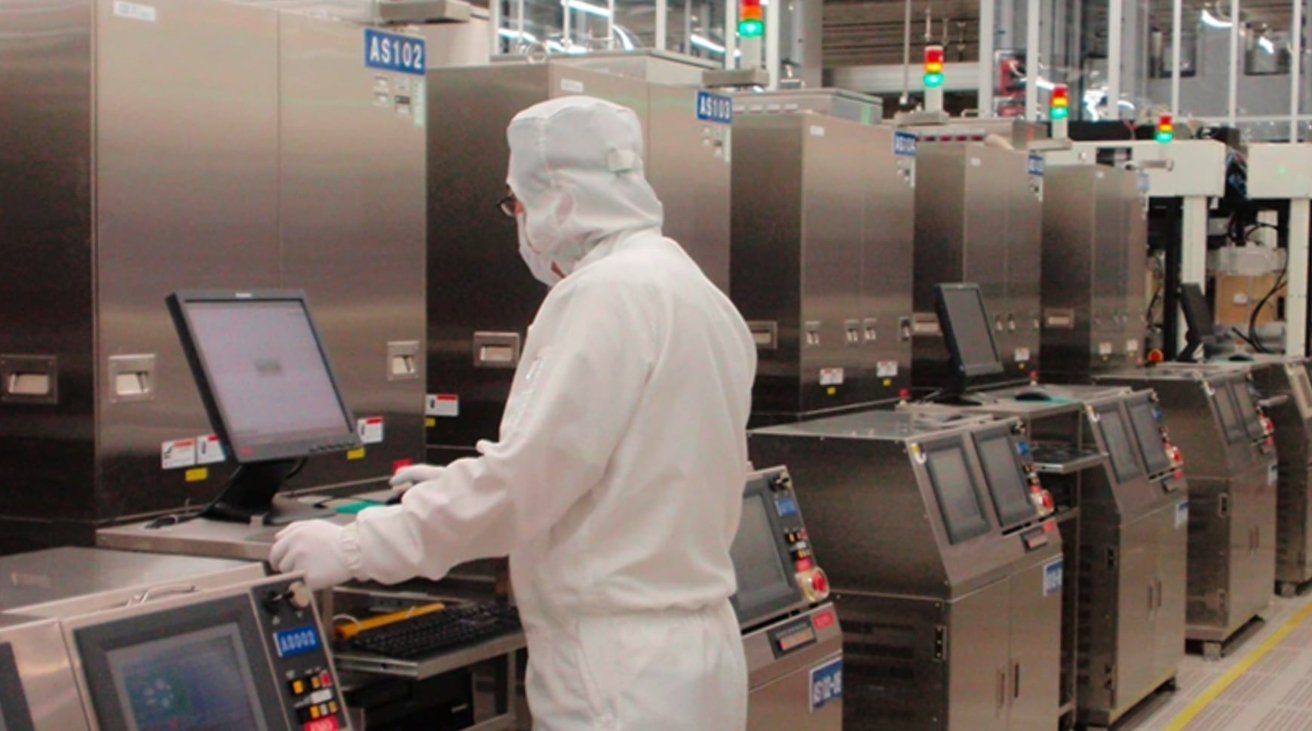The global chip shortage will become a problem for devices like iPhones and Macs requiring chips for storage, but Wedbush believes it could be beneficial to Apple and its suppliers by improving the pricing of components.
The world is undergoing a semiconductor supply shortage, with chip production issues affecting supply chains for many companies. The global crisis, which has gotten worse following the fire at a Renesas chip foundry in March, has stretched all remaining production capacity, and is impacting many different industries.
In a research note from Wedbush seen by AppleInsider, this may be beneficial to vendors in the long term, though not necessarily immediately.
The crisis could take place for an extended period, according to analyst Matt Bryson, due to the "increasingly tight availability of wafers" and a lack of "incremental mature capacity" for production. With the shortages "approaching ludicrous levels," the problem is becoming a big issue for many smartphone and device vendors.
Xiaomi believes its chip supply issues are "hindering its operations," much like Samsung and many other smartphone producers, but it hasn't been a major problem until recently. Supply chain feedback suggests Chinese smartphone producers have stockpiled inventory since the fourth quarter to mitigate any shortages.
By Xiaomi admitting to having supply issues, this suggests the "shortages have reached a new level," according to Wedbush. In turn, other products that rely on new chip production and made using mature nodes are "seeing elongated (and in some cases, extremely elongated) lead times."
Given that Apple and other device producers will have undergone similar stockpiling measures, it is likely that they too will be feeling the supply pinch. At some point, the limited component availability could force Apple and others into short-term price adjustments that could hit consumer wallets hard.
While this is an issue in the short term, the firm believes it could be a situation that benefits device producers, as "constraints yield forward pricing leverage."
The current supply shortfall is assisting with foundry capacity utilization, but pricing gains for those foundries are more modest "due to the longer-term nature of contracts." The longer period of tight supply could increase pricing of components as "terms for new programs are set or older contracts are renegotiated."
This is viewed as a potential benefit to foundries as "the rising tide lifts all boats." This includes TSMC, a chip producer that Apple closely partners with on its A-series chips and Apple Silicon.
To Apple, a chance to renegotiate contracts could be beneficial, as it famously is known for coaxing favorable terms from its suppliers. Given that sometimes contracts don't always fall in Samsung's favor, such as its OLED contract with Samsung, this presents an opportunity for Apple to massage existing deals further.
While beneficial in general, the shortages could still be an issue for "system vendors," which could include Apple with its Mac lineup. Such companies "historically had a difficult time offsetting shipment limitations, or passing on the full extent of component cost increases to customers in a timely fashion."
Stay on top of all Apple news right from your HomePod. Say, "Hey, Siri, play AppleInsider," and you'll get latest AppleInsider Podcast. Or ask your HomePod mini for "AppleInsider Daily" instead and you'll hear a fast update direct from our news team. And, if you're interested in Apple-centric home automation, say "Hey, Siri, play HomeKit Insider," and you'll be listening to our newest specialized podcast in moments.
 Malcolm Owen
Malcolm Owen







-m.jpg)






 Marko Zivkovic
Marko Zivkovic



 Amber Neely
Amber Neely

 Wesley Hilliard
Wesley Hilliard
-xl-m.jpg)









10 Comments
The other day, I half-jokingly posted an Apple refurb Mac Pro into a crypto mining forum where someone was considering buying a GPU for like $2000 that wasn't even as powerful as the one in the Mac Pro refurb (which had 2 of them). If Apple has a good supply or already has the components, yeah, it could certainly make them more price competitive if the rest of the market can't get them or their costs go way up.
What kind of wishy magic supply and demand reality distortion field nonsense is this?
Yeah, I am not exactly sure what the guy's point is either, except that they are really good at negotiating new contracts. But that is true regardless of whether there are currently constraints on manufacturing or not.
Maybe constraints now lead to over production later and they can cash in on that for lower prices later
Agree with confused/skeptical comments.
In the short run, anybody with long term contracts has an advantage over people buying in the spot market — that’s clear.
if this enables apple to charge less than the competition without sacrificing margins, then that’s great for apple because they can expand market share in a very profitable way. Apple has a sticky ecosystem, so once people are in they are likely to stay. So, I could see that as a long term benefit to apple.